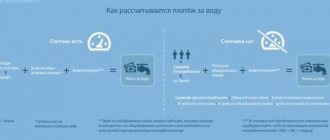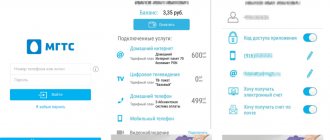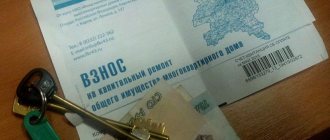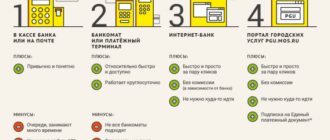What is written in the rules for issuing subsidies
The subsidy is allocated to LLCs and individual entrepreneurs with certain OKVED codes, which are also included in the register of small and medium-sized businesses (for more details, see “A new subsidy for small businesses has been approved: who can receive it”).
Reference
You can find out which OKVED code is assigned to your organization or individual entrepreneur using an extract from the Unified State Register of Legal Entities or the Unified State Register of Individual Entrepreneurs, and you can also check whether an LLC or individual entrepreneur is included in the register of small and medium-sized businesses using the “Kontur.Focus” service.
Connect to the service "Contour.Focus"
The procedure for issuing and using “preventive” subsidies is regulated by Russian Government Decree No. 976 dated July 2, 2020. Already from its name it follows that money is given to businesses for a reason, but for specific purposes. Namely: “to carry out measures to prevent the new coronavirus infection.”
The resolution approves the rules for issuing subsidies. Paragraph 5 of the Rules says: money is allocated for initial prevention costs (15 thousand rubles) and current ones (6,500 rubles for each employee). Entrepreneurs without employees receive money only for initial expenses.
However, the Resolution does not contain a specific list of preventive measures on which the money received should be spent, nor provisions on what will happen if the funds are spent on other purposes. The only clause on liability that is in the Rules concerns the recipient’s distortion of data in the reporting submitted to the Pension Fund of Russia - on the basis of this information the amount of the subsidy is calculated. In particular, information from the SZV-M form is used.
Fill out, check and submit the SZV-M for free via the Internet
Clause 12 of the Rules states that in case of distortion of reporting, the money received must be returned to the budget. In addition, it is worth paying attention to clause 13, which gives the Federal Treasury the right to monitor compliance with the purposes of providing subsidies.
Let's sum up the intermediate results. The main document regulating the issuance of a subsidy for disinfection specifies its intended purpose and lays down a mechanism for monitoring its compliance. However, it does not contain any provisions on penalties for misuse of money.
Documents for an apartment subsidy in 2020
The social service will tell you what documents you need to collect for a subsidy for an apartment in each specific case. In addition, any citizens receive benefits when their total income is compared with utility costs. The latter cannot be higher than 22%. Income groups include any types:
After 6 months, the family undergoes a second procedure. This frequency makes it possible to identify changes in the family structure, as well as in the amounts of salaries and benefits, in order to make a correct recalculation. To do this, you must provide the currently relevant documents required for an apartment subsidy.
What is considered misuse?
Obviously, before talking about responsibility for misuse of money, it is necessary to determine what specific needs the subsidy can be spent on. As already mentioned, the Resolution itself describes the goal as broadly as possible: “carrying out measures to prevent a new coronavirus infection.” This means that spending on any goods, work or services that are somehow related to prevention (disinfection of premises, purchase of protective equipment, testing, etc.) will be considered targeted within the framework of Resolution No. 976.
Important
Neither the Decree nor the Rules stipulate that the subsidy is allocated to cover costs already incurred. It turns out that the taxpayer cannot use budget money for other needs, even if he has previously spent similar amounts on preventive measures. Such spending of the subsidy may be considered inappropriate.
Registration of a subsidy for housing and communal services at the MFC
10 days are given from the date of submission of the application to process the data and make a decision. You will be notified of the decision made and invited to see a specialist at the MFC; payments will stop arriving after six months. Then, the documents must be collected again. In case of a change of place of work or residence, information about this must be reported within a month and documented facts must be provided. The money is transferred to the bank account from the moment the decision is made.
Every six months on the same day, funds will be transferred to your open personal account. The citizen decides for himself which services to pay for. At the end of the six-month period, you need to collect documents again and apply for a subsidy at the MFC, because During this time, income, place of residence, etc. may change.
Misuse and taxes
The Tax Code contains a rule on the need to comply with the intended purpose of budget allocations. We are talking about the rules sub. 14 clause 1 art. 251 Tax Code of the Russian Federation. It says: earmarked funds used for other purposes lose their tax-exempt status and must be included in non-operating income. However, these provisions cannot be applied to a “preventive” subsidy.
The fact is that sub. 14 clause 1 art. 251 of the Tax Code of the Russian Federation contains its own closed list of targeted revenues to which this norm applies. And coronavirus subsidies are not named there. Moreover, for them, legislators introduced clause 1 of Art. 251 of the Tax Code of the Russian Federation, a separate paragraph numbered 60. And this paragraph does not contain any reservations about the intended use of money received from the budget and the consequences of violating it.
Thus, from the point of view of the Tax Code of the Russian Federation, taxpayers falling under sub-clause. 60 clause 1 art. 251 of the Tax Code of the Russian Federation, the subsidy for disinfection will not be subject to income tax (or a single tax under the simplified tax system) regardless of what purposes the money will actually be spent on. Moreover, the exemption will also apply in a situation where the money will not be spent in principle, but will remain in the taxpayer’s account.
Maintain tax and accounting records under the simplified tax system in an intuitive web service Try for free
Is there a sanction in the Budget Code?
Since the subsidy is allocated from the budget, the rules of budget legislation may be applied to the relationship between its receipt and expenditure. Let's take a look at them.
The procedure for providing subsidies to recipients from the extra-budgetary sector (commercial organizations and individual entrepreneurs) is regulated by Article 78 of the Budget Code. This article contains a general provision that the rules on the basis of which a subsidy is allocated must contain a mandatory clause on control over the intended use of money. However, it does not establish specific liability for misuse of funds.
Such liability is not established in Article 306.4 of the Budget Code of the Russian Federation, which is entirely devoted to the misuse of any budget funds, incl. and received on the basis of decrees of the Government of the Russian Federation. True, paragraph 2 of this article establishes punishment in the form of unconditional recovery of money used for other purposes only in relation to targeted interbudgetary transfers. In this case, the money is allocated directly from the federal budget. Therefore, although the situation as a whole falls within the scope of paragraph 1 of Art. 306.4 of the Budget Code of the Russian Federation (i.e., recognized as misuse of budget funds), apply the rules of clause 2 of Art. 306.4 of the BC RF regarding liability will not work.
Keep records and submit all individual entrepreneur reports via the Internet
Certificate of income for subsidy
The key document in determining the volume of financial subsidies is considered by government agencies to be a certificate of income. This certificate is issued in a certain form (2-NDFL) in the accounting department of the citizen’s official employer.
A certificate of income and wages for a subsidy must contain information about income received, taking into account tax deductions, for a certain period, usually one year. In order to count on receiving a subsidy, the maximum income for all family members should not exceed the subsistence level budget.
Certificate 2 personal income tax can be found at the link:
Is there any risk of administrative liability?
The next rule that can be applied to recipients of “preventive” subsidies is Article 15.14 of the Code of Administrative Offenses (CAO RF). It’s called: “Inappropriate use of budget funds.” And as we remember, the definition of misuse given in paragraph 1 of Art. 306.4 of the Budget Code of the Russian Federation, also covers subsidy recipients.
Article 15.14 of the Code of Administrative Offenses of the Russian Federation states: liability in the form of a fine and disqualification may occur for the fact that budget funds are allocated for purposes that do not correspond to those specified in the regulatory legal act on the basis of which they are allocated. It is obvious that spending a “preventive” subsidy for any other purpose is fully subject to this article of the Code of Administrative Offenses of the Russian Federation. This means that if an organization or individual entrepreneur spends the money received on something not related to the prevention of coronavirus, they will face an administrative fine: for individual entrepreneurs - from 20 to 50 thousand rubles; for organizations - from 5 to 25 percent of funds used for other purposes. Also, an individual entrepreneur or the head of a company may be disqualified for a period of one to three years.
note
If the amount of the subsidy spent for other purposes is 1.5 million rubles. and more, then criminal liability is possible. Article 285.1 of the Criminal Code of the Russian Federation provides for misuse a maximum penalty of imprisonment for a term of up to two years with possible deprivation of the right to hold certain positions or engage in certain activities for a term of up to three years.
How to get a?
A specific government social protection agency is responsible for each specific type of subsidy. But despite the fact that the decision to issue or refuse assistance is made by different institutions, the procedure and procedure for obtaining financial support are approximately the same.
Initially, you need to submit an application and a set of documents to the relevant authority that distributes subsidies. After reviewing the application and assessing the degree of need for a subsidy, a decision is made to issue or refuse funds.
Citizens whose financial security is much lower than the accrued payments and if they fall into one of the following categories can count on receiving financial assistance to pay for housing and communal services
- Owners of residential premises;
- Shareholders;
- Renters of private housing;
- Citizens living in state real estate.
The amount of payments in each specific case is determined individually based on the documents provided.
To obtain or reconstruct residential premises, the state can also provide funds for free use. The basis for receiving such assistance may be an application from one of the following categories of citizens:
- Young spouses;
- Families with two or more children;
- Military personnel;
- Orphans;
- Low-income citizens;
- Young professionals working in rural areas, etc.
Required documents
To receive assistance to improve their living conditions, citizens must provide the relevant authority with the following documents:
- Copies of passports and (or) birth certificates;
- Marriage certificate;
- Extracts from house and work records;
- Income certificates;
- Documents confirming benefits;
- Certificate of ownership of real estate.
The set of documents for receiving subsidies for housing and communal services is also supplemented by:
- certificate of family composition;
- certificate of income of all family members;
- receipts for payment of housing and utility services for six months;
- other documents determined by the relevant authority.
Summarize
A special mechanism for monitoring the spending of subsidies on disinfection has not been established, however, treasury and financial control authorities have the right to check the targeted nature of the relevant expenses (clause 13 of the Rules, clause 2.1 of Article 266.1 of the Budget Code of the Russian Federation). Relevant documents may also be requested from the subsidy recipients themselves (Article 267.1 of the Budget Code of the Russian Federation).
Spending budget money for purposes that are in no way related to the prevention of coronavirus may result in a fine and disqualification for the recipient (Article 15.14 of the Code of Administrative Offenses of the Russian Federation). And with significant amounts of subsidy - even criminal prosecution (Article 285.1 of the Criminal Code of the Russian Federation). However, there are no tax or “budgetary” consequences in this case.
Separately, it is worth noting that it is the spending of the subsidy for purposes that do not comply with Resolution No. 976 that is punished. This means that punishment cannot be applied to organizations and individual entrepreneurs, as well as their officials, if the amount received simply “settled” in a bank account and was not used at all .
List of documents for obtaining a subsidy
Subsidy is assistance in monetary or other terms that is provided by the state to persons who have the right to do so, confirmed by relevant documents. It follows from the definition that in order to receive a subsidy, it is necessary to provide special authorities with a package of certain documents specifically for this type of subsidy.
- When renting housing - a copy of the agreement confirming the transaction;
- Members of housing, construction and consumer cooperatives - a document confirming membership;
- If there are some disagreements between family members , statements containing the reasons for the disagreements, as well as copies of legal claims documents, if any.









